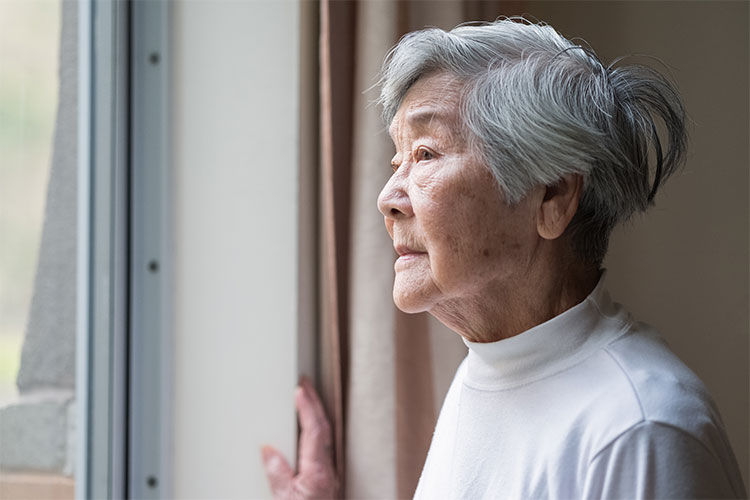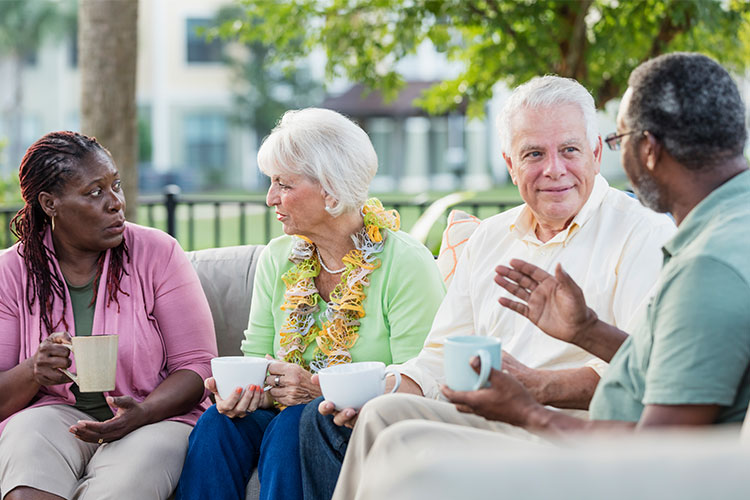World Elder Abuse Awareness Day is commemorated every year on 15 June to raise awareness about the serious personal, social, economic and public health problem: elder abuse. This type of violence is any act which causes harm to an older person, including physical, sexual, psychological and emotional abuse; financial and material abuse; abandonment; neglect; and serious loss of dignity and respect.
Elder abuse is a widespread issue that affects the health, well-being, independence and human rights of millions of older people around the world. But in many communities, it still occurs with little recognition or response.

- Bullying, name-calling, threatening harm or refusing access to grandchildren
- Refusing care including food, medicine, warmth and accommodation
- Misusing powers of attorney or misdirection to manage an older person’s finances
- Physical assault, rough handling, restraint or chemical restraints such as alcohol and medicines
- Withholding contact with family and friends
To find out more about elder abuse, we speak to Sue McGrath, Senior Policy Advisor, Older Australians at EveryAGE Counts about how elder abuse is linked with ageism. Spearheaded by The Benevolent Society, EveryAGE Counts is Australia’s national coalition and grassroots movement to end ageism.
Ageism and Elder Abuse
Ageism is stereotyping, discrimination and mistreatment based solely on age.
“Ageism against older people comes from widespread acceptance of negative attitudes and beliefs about the value of older people and later life,” says Sue. “It’s experienced in different ways by different people and groups in the community but it affects all older people.”
“There’s a lot more ageism in Australia than many people realise or acknowledge as important.”
“Ageism is one of the main factors driving and enabling elder abuse. According to Australia’s first national prevalence study on elder abuse, higher levels of ageist views are associated with higher condoning of elder abuse and lower recognition of elder abuse.”
Sue explains that ageism’s prevalence within our society can trivialise or minimise stories of abuse from an older person, leading us to dismiss complaints and perpetuate the cycle of abuse.

“Ageism is also often internalised by older people, leading us to believe that when bad things happen to us, they are an inevitable part of ageing. This can be a risk factor for elder abuse, along with a number of other issues.”
“But to understand elder abuse it is essential to go beyond the individual context. When we hear of elder abuse, it is often framed as an individual issue rather than a systemic issue. It’s commonly viewed that there was a ‘bad apple’ who worked alone to perform abuse,” says Sue.
“Instead, we should think about elder abuse as the result of a wide acceptance and adoption of negative attitudes, beliefs and behaviours that erode the autonomy and value of an older person and their rights.”
Taking Action Against Elder Abuse and Ageism
Still largely invisible and highly tolerated, ageism is damaging to older people and the broader community. By bringing awareness to the link between ageism and elder abuse, we can draw attention to both issues and make some noise.
“Ageism creates conditions where elder abuse can occur.”
“To end elder abuse, we need to address it at the source and tackle ageism.”
“We are all getting older. And thanks to the advancements to medicine, care, nutrition and many other social developments we are living longer too. Recognising and calling out ageism no matter your age, is of benefit to everyone.

“If you are younger now, you are investing in your own future self, as well as standing up for the rights and value of those who are now older.” says Sue.
Sue strongly urges that all Australians can start taking action today by:
- Recognising and calling out ageism when they see it
- Not blindly accepting stereotypes about ageing that characterise all older people as dependent, frail and vulnerable, but instead recognise the diversity of older lives
- Strengthening human rights by upholding the autonomy, agency and rights of older people whatever their personal or health circumstances
- Pledging to EveryAGE Counts to take a stance against ageism
- Starting a conversation about elder abuse in your workplace, your family and your community
- Wearing purple this World Elder Abuse Awareness Day, 15 June, to show your support for ending elder abuse
If you, or someone you know, is suspecting elder abuse, Sue has recommended Compass as a resource to help you understand, prevent or address elder abuse, and to find contact details for services that may be able to assist.
The Benevolent Society is a proud supporter of various causes to maintain autonomy in older people’s lives including EveryAGE Counts, Index of Wellbeing for Older Australians and Fix Pension Poverty. To find out more about our advocacy campaigns, please visit our page here.